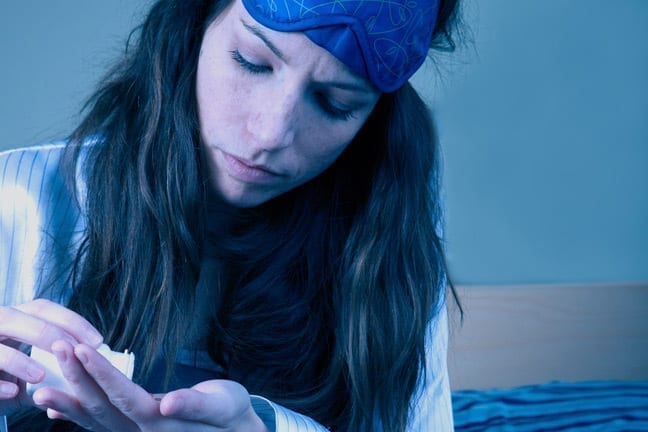America is a sleepless country—nearly 50 percent of adults report occasional difficulties with sleep and 15 percent report chronic insomnia on a regular basis. As a result, many people use medications to help them sleep, with a large group of people experimenting with over-the-counter (OTC) medications.Although OTCs can be effective for the occasional sleepless night, they are not the ideal choice for patients with chronic insomnia, even for those who experience as little as two weeks of trouble sleeping in a row. Many OTCs can have negative interactions with other medications as well. Here is a list of the most common sleep OTCs—and whether or not they’re appropriate for treating insomnia.1. Diphenhydramine (Benadryl, NyQuil ZZZ, Tylenol PM, Advil PM, Unisom sleep): Diphenhydramine is a sedating antihistamine and may be helpful for occasional bouts of sleeplessness. The biggest issue with relying regularly (two or more weeks of regular use) on diphenhydramine-containing medications is that tolerance can build up and the actual sedating effect of the medication is significantly reduced, thereby creating a psychological dependence on the medication. (You think you need it, but oftentimes the sleep-inducing effects have worn off.) You might also notice that you start taking more of the medication to experience the sleepiness effects. Some patients report a “hangover-like” feeling the next morning, indicating issues with dizziness, grogginess and simply feeling “off” the next day. Other side effects might include dry mouth and memory problems.2. Doxylamine (Unisom SleepTabs): Doxylamine is another sedating medication with similar side effects to diphenhydramine.3. Valerian: Some studies have shown sleep benefits in taking valerian and that it might prove beneficial for an occasional bout of insomnia. However, research is still pretty new in this field and the exact mechanism of action is generally unknown. The FDA does not regulate valerian and potency can vary significantly between different manufacturers. Side effects are also noted, including headache, excitability, uneasiness and nausea.4. Melatonin: Melatonin is a natural hormone made by the body’s pineal gland. Though many people use it for insomnia, the results are mixed. Melatonin, in very small doses (0.5-3 mg) has been shown to help people with circadian rhythm disorders, but larger doses (over 3 mg) taken at bedtime aren’t helpful for many people.The pineal gland is inactive during the day and when the sun goes down, it becomes active and naturally produces melatonin. The FDA does not currently regulate melatonin. As a result, listed doses and ingredients may not be completely accurate. Melatonin may cause side effects such as daytime sleepiness, headaches, confusion, nausea, sleepwalking and nightmares. It can also interact negatively with certain medications (blood thinners, diabetes medications, birth control pills and immunosuppressants).If you are having trouble sleeping and are considering taking an OTC sleep aid, consider taking the following steps:
- Talk with your doctor. OTCs might be useful for occasional bouts of insomnia, but your doctor will be the best person to discuss if other options might be better, such as cognitive behavior therapy or prescription medications. See my previous post about cognitive behavior therapy for insomnia, as it should often be the first-line treatment for insomnia before medications. Finally, your doctor can tell you whether or not there are any interaction issues with OTCs and current medications you’re taking or illnesses you may have.
- If you’ve been relying on OTCs for two or more weeks, consider discussing other treatment options with your doctor.
- Even though they’re over-the-counter, they’re still prone to side effects. Don’t engage in any activities such as driving if you’re feeling any grogginess.
- Don’t mix alcohol and sleep aids. They can make you even sleepier during the daytime.
- If you’re following proper sleep hygiene and have tried OTCs or prescription medications, consider seeing a sleep specialist to rule out any other causes for your sleeplessness.




































